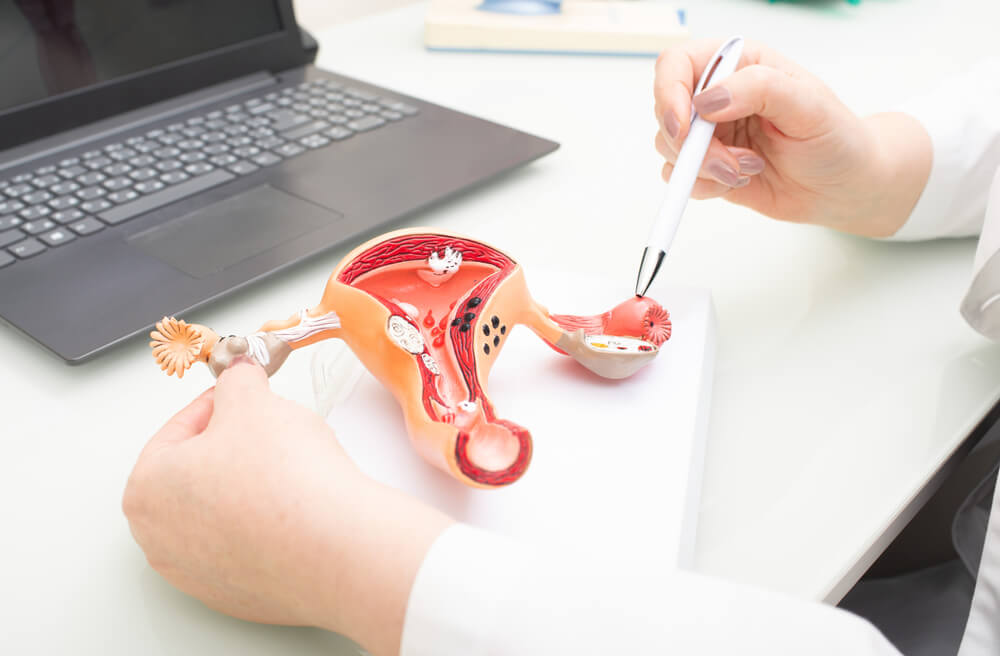Visiting the gynecologist regularly is essential for a woman’s reproductive health. Besides proper sexual health, seeing the gynecologist can address any concerns a woman may have about menstruation, vaginal pain, abnormal bleeding, and more.
Professionals recommend that women have their first time gynecologist visit around the beginning signs of puberty. Typically women around the ages 13-15 should schedule a visit, but it varies per female.
Gynecologist Bradenton FL
Sometimes you may need to schedule their first gynecologist visit earlier if there is anything concerning your vaginal health. If you have not had your period by the age of 15, schedule a visit with us to make sure you are healthy.
Also, if you are experiencing irregular or painful periods, you should come to the gynecologist right away.
Preparing for Gynecologist Visit
If you feel nervous about your first gynecologist visit, take a few deep breaths. There is nothing to stress about over. Preparing for gynecologist visits is not tricky. All you have to do is address the concerns you have brought into the doctor’s office.
Are you looking for a check-up of your overall health? Tell your doctor just that!
Gynecologist in Bradenton Florida
Women’s Care of Bradenton has a gynecologist in Bradenton Florida for you. Our team of trained professionals put female health first. We are here to address any concerns you may have about vaginal health. After all, the first gynecologist visit is a step towards giving your body the care it deserves.

Gynecologist Bradenton FL
Whether it is your first gynecologist visit or you have not been in a while, there are a few things you should let your doctor know. Remember, don’t feel embarrassed about anything, especially at your first time gynecologist visit.
Our gynecologist Bradenton Florida is here for you. The doctors have seen it all and are only concerned with your well-being.
What to Expect During Your First Gynecologist Visit
Usually, a first time visit will be different than visits in the future because your doctor has to learn about your medical history and what in particular affects you. To put it simply, your gynecologist has to get to know you. Not in a small talk kind of way, of course, but to learn about your specific health needs.
- When you first enter the office, you will check-in and have a seat until the nurse calls your name. Once called, a nurse will typically lead you into an exam room. The doctor will have laid out a gown for you, and your nurse will ask you to remove your clothing and wear the gown for your exam. The nurse will exit and close the door while you change your clothes.
- After a few minutes, the nurse or doctor will knock to see if you are ready. Once ready, the doctor will measure your height and weight. If applicable, the doctor will record the date and length of your last period. It can be helpful for both you and your doctor if you track your period on a calendar. This way, your doctor can detect irregularities more easily.
- You will have your blood pressure taken as well. Your doctor may give you a breast exam to check for lumps and an external exam of your genitals.
- A large portion of your first time gynecologist visit will be a discussion about your primary concerns and medical past. Your doctor will ask if you are sexually active and, if applicable, about your sexual partners.
- A gynecologist may suggest that sexually active patients have a sexually transmitted disease screening as a precaution since some symptoms can go unnoticed.
- Sometimes, during a first time visit, your doctor may perform a pelvic exam. Other times, doctors wait until a follow-up appointment to perform a pelvic exam.
- You will be able to discuss any other concerns with your doctor. Problems can range from acne, weight fluctuations, irregular menstruation, or any other irregularities you may have noticed. From sexual health to mental health, your gynecologist can cover it all. Often, symptoms are interconnected, so it is vital to bring all sorts of concerns to your doctor.
- Finally, you may have a blood or urine test to check for any abnormalities. Some use the gynecologist as their primary care physicians because they can refer you to specialists if something seems off in another part of your body.
Pelvic Exam
A pelvic exam is when your gynecologist will examine the inside and outside of your genitals. This process shouldn’t be painful. You may experience a sensation of pressure as the exam happens. It is important to remember to relax during a pelvic exam. Tightening up or clenching can make the process uncomfortable.
The exam typically addresses symptoms related to reproductive health. If you experience abnormal discharge, bleeding, or pain, a pelvic exam can help find the culprit of your symptoms.
Pap Test
Women receive Pap tests to indicate cancer or precancer of the cervix or colon. The exam involves testing cells from your cervix. All women should receive a Pap test at some point. Once you are 21 or older, your doctor will most likely recommend a Pap test.
A Pap test shouldn’t be painful. The process may be a bit uncomfortable for first-timers because it could be something you have never felt before. The sensation feels a bit like internal pinching.
Before Your Visit: Gynecologist Bradenton FL
Before your visit, you do not need to worry about appearance, shaving, or waxing. Your doctor is not at all concerned with whether or not you use hair removal. Our healthcare professionals and gynecologist in Bradenton Florida put quality care first. You should never feel embarrassed about anything. Your health is our primary concern.
We typically recommend tracking your menstrual cycles as best as possible for women that have had their period. This way, by having a layout of your menstrual cycle, it is clear whether irregularities are present.
Also, if you decide to have a treatment like birth control, you will see how much or little your treatment has worked by having a record of your period.
If you are having your period during your scheduled appointment, you can call your clinic to reschedule. However, depending on your symptoms, your doctor may recommend you come in anyway.

Other Things to Remember
- Be honest. Your gynecologist is not there to judge you. Instead, they need to know some personal information to detect any health problems best. This could include discussing sexual partners and if you use protection. Be honest about alcohol and drug use as well.
- Your doctor is not going to think badly about you. They care about giving you the best possible healthcare tailored to your needs. STDs can be common in young women, and sometimes symptoms are not obvious.
- It is essential to get tested and be honest about your sexual past because if these diseases go unnoticed, your fertility could be at risk.
We Are Here For You!
If you are a developing woman, call us today to schedule your first gynecologist appointment! During this exciting period of your life, it is crucial to take care of your body. Our team of healthcare professionals is here for you.


